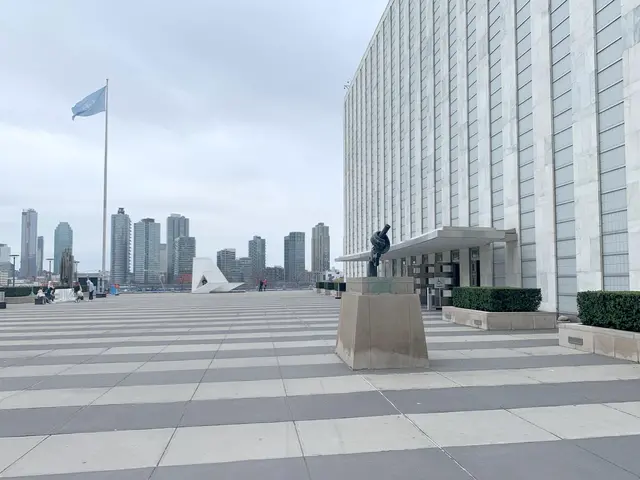The United States has recently attempted to block a UN resolution on equal access to COVID-19 supplies only to find that the document was already adopted under a temperary procedure, media reports said Tuesday. The resolution was adopted by consensus on Monday by the 193-member United Nations (UN) General Assembly. Its adoption was made known on Tuesday.
According to the Agence France-Presse (AFP), the United States failed to block the resolution as its objection came late after a so-called "period of silence" expired on Monday.
Under normal circumstances, the UN General Assembly adopts resolutions by consensus or majority votes through physical meetings. However, due to the COVID-19 pandemic, it has set up a temporary decision-making procedure, which allows its member states to veto any text of a proposed resolution during the "period of silence."
In its report, the AFP quoted diplomats as saying that the United States did not voice objections before Monday's deadline, but did so just afterward.
The adopted resolution requests the UN secretary-general to help promote and ensure access to and distribution of preventive tools, laboratory testing, reagents and supporting materials, essential medical supplies, new diagnostics, drugs, and future COVID-19 vaccines, with a view to making them available to all those in need, particularly in developing countries.
It calls on member states and other relevant stakeholders to immediately take steps to prevent speculation on and undue stockpiling of essential medicines, vaccines, personal protective equipment and medical equipment that is required to effectively address COVID-19.
During a virtual news briefing on Monday, Stephane Dujarric, spokesman of UN Secretary-General Antonio Guterres, said the secretary-general wants a vaccine for COVID-19 to be available to all people around the world.
"We want to make sure that the vaccine does not exacerbate the issues of inequality when it actually arrives and that it is shared for the benefit of all," Dujarric said.
 简体中文
简体中文

